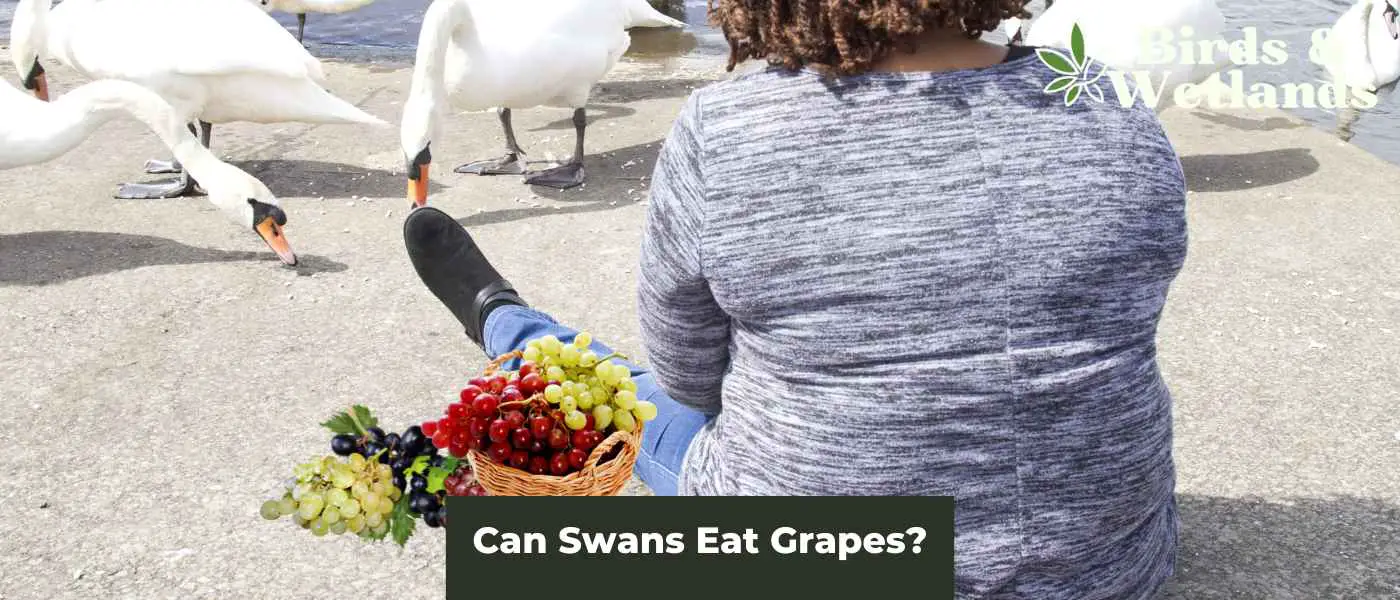Grapes are a delicious and nutritious treat packed with antioxidants and other essential nutrients that can benefit most birds.
But can swans eat grapes?
Yes, swans can eat grapes as an occasional treat. Grapes should be seedless, washed, and cut in half to avoid choking hazards. However, it is important to offer grapes in moderation and ensure that swans maintain a balanced diet consisting mainly of aquatic vegetation and supplemented with other natural foods.
Key Takeaways on Feeding Swans Grapes
- Grapes as occasional treats: Swans can safely eat grapes, but they should be offered sparingly.
- Seedless and washed: Offer seedless grapes and wash them thoroughly to ensure they are safe for consumption.
- Cut in half: To avoid choking hazards, cut grapes in half before offering them to swans.
- Moderation is key: Do not overfeed swans with grapes, as they should primarily consume aquatic vegetation.
- Balanced diet: Ensure swans maintain a balanced diet with a mix of aquatic vegetation, leafy greens, and grains like oats.
Are grapes healthy for swans?
Swans are gracious birds with long necks. And not many people know that they can benefit from eating grapes with good nutritional value.
Grapes are nutritious snacks full of vitamins, minerals, antioxidants, and other essential components. They are high in Vitamin C, Vitamin K, manganese, potassium, and magnesium.
Vitamin C helps boost the immune system and protect against illness, while vitamin K is important for blood clotting and healthy bones.
Manganese aids in energy production, potassium helps maintain proper fluid balance, and magnesium helps regulate muscle and nerve function. Grapes also provide dietary fiber, which helps with digestion and essential fatty acids.
Grapes are especially beneficial for swans as they contain several important nutrients, including carotenoids lutein and zeaxanthin, which help protect against UV damage caused by the sun’s rays on their feathers. These carotenoids also support eye health in swans by helping to keep their vision sharp.
In addition to these essential vitamins, grapes provide quercetin which helps reduce inflammation in avian species such as swans. Quercetin also acts as an antioxidant, fighting off free radicals that can damage cells throughout their bodies.
Grapes are also full of polyphenols like resveratrol, which may help control bacterial growth in a duck’s digestive tract while promoting overall gut health.
Finally, the iron in grapes supports blood health in swans by helping to transport oxygen throughout their bloodstream, providing them with energy during long migrations in the winter months or when searching for food over long distances.
Additionally, since iron plays a role in regulating hormone activity, it may help swans better cope with stressful situations or changes in their environment, such as sudden temperature shifts or changes in water levels due to drought conditions.
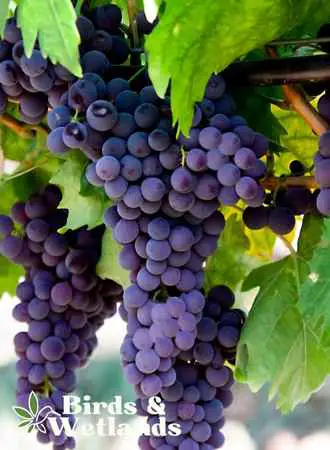
Can baby swans eat grapes?
It is safe to give baby swans grapes as a nutritious treat as long as certain guidelines are followed. Young swans should only be given grapes once they are at least four weeks old, as their digestive system still needs to be developed enough to process the fruit.
To make the grapes easier to digest, cut them into small pieces before giving them to the birds.
Feed grapes to the female swan and her baby swans in moderation and use them sparingly as treats. Too many grapes can cause digestive problems or other health issues. Feed them aquatic plants and other vegetables instead.
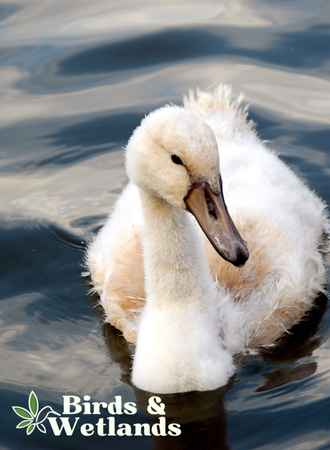
How many grapes can swans eat
Young and adult swans enjoy grapes as a treat, but they should only be given a small amount once or twice a week. Giving a swan no more than five or six grapes in one sitting is generally safe. However, the number of grapes people feed a mute swan at the local pond should eat depends on its size, with smaller birds needing fewer grapes than larger ones.
Too many grapes can cause indigestion and other health problems in swans. If you have pet swans, grapes should be used sparingly and not make up most of their diet, consisting of aquatic vegetation, small fish, frogs, small insects and invertebrates.
Grapes also contain a lot of sugar, which can lead to obesity and other health issues if consumed excessively. It is important to monitor how much your pet swan is eating and adjust accordingly to ensure its overall health.
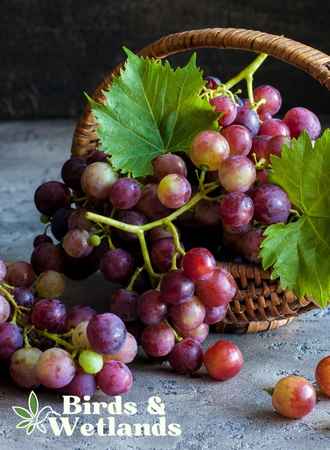
How to serve grapes to swans
Feeding swans grapes is as simple as cutting the grapes in halves or quarters. If you feed swans grapes, also make sure to throw them into the shallow water to avoid encouraging young swans on the bank.
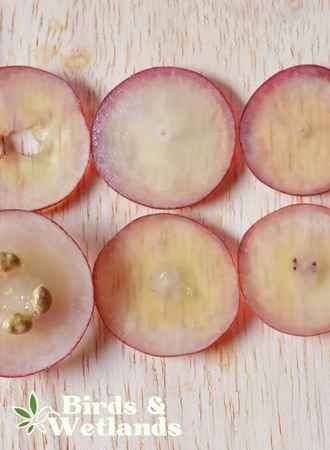
What other foods can you mix grapes with?
Here are some foods that you can mix grapes with:
- Feeding bread, salty foods and sugary foods to swans and ducks are unhealthy for these beautiful animals. Swans will eat almost anything you give them, so give them grapes mixed with other foods instead.
- Swans eat fish and other animals, so if you want to supplement their diet with something healthy, give them grapes. However, do note that animal matter only consists of a small portion of the swan’s natural diet.
- You can feed a swan family grapes mixed with apples. Make sure to remove the apple seeds because they harm other birds and most animals.
- Male and female swans are crazy for plant material, underwater plants, vegetable matter and short-cropped grass. While grapes are an acquired taste for some swans, you can actually mix them with their usual foods.
- You can also mix grapes with green beans, corn and chopped lettuce.
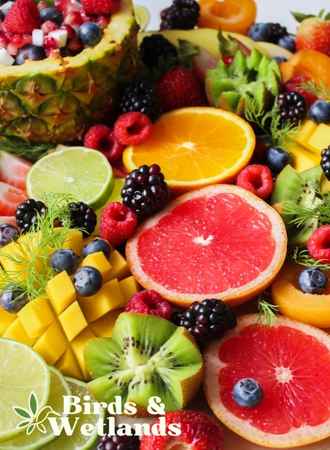
Other Foods Swans Can Eat
Best Waterfowl Feed
Delightful Feeding Experience
Transform your backyard into a scenic waterfowl habitat and enjoy an interactive feeding experience with Natural Waterscapes Waterfowl Floating Food.

Pros
- Nutritious Food: Natural Waterscapes Waterfowl Floating Food is specifically designed to provide essential nutrients to waterfowl, including swans, geese, and ducks, helping them maintain a healthy diet.
- Convenient: The food comes in resealable packaging, making it easy to store and use as needed. It is also easy to handle and transport.
- Floating Formula: The floating formula of the food allows it to remain on the surface of the water, making it easier for waterfowl to eat and minimizing the risk of water contamination.
- Attracts Waterfowl: The food is formulated to attract various waterfowl species, including swans, geese, and ducks, to your pond, lake, or other water body, providing an opportunity to observe and enjoy these beautiful creatures.
- Environmentally Friendly: Natural Waterscapes Waterfowl Floating Food is made with environmentally friendly ingredients and does not contain any harmful preservatives, making it safe for both waterfowl and the environment.
Cons
- Shelf Life: The food’s shelf life may be limited compared to other types of waterfowl food due to its natural ingredients and lack of preservatives. This means you may need to use it up quickly after opening the package to prevent it from going bad.

